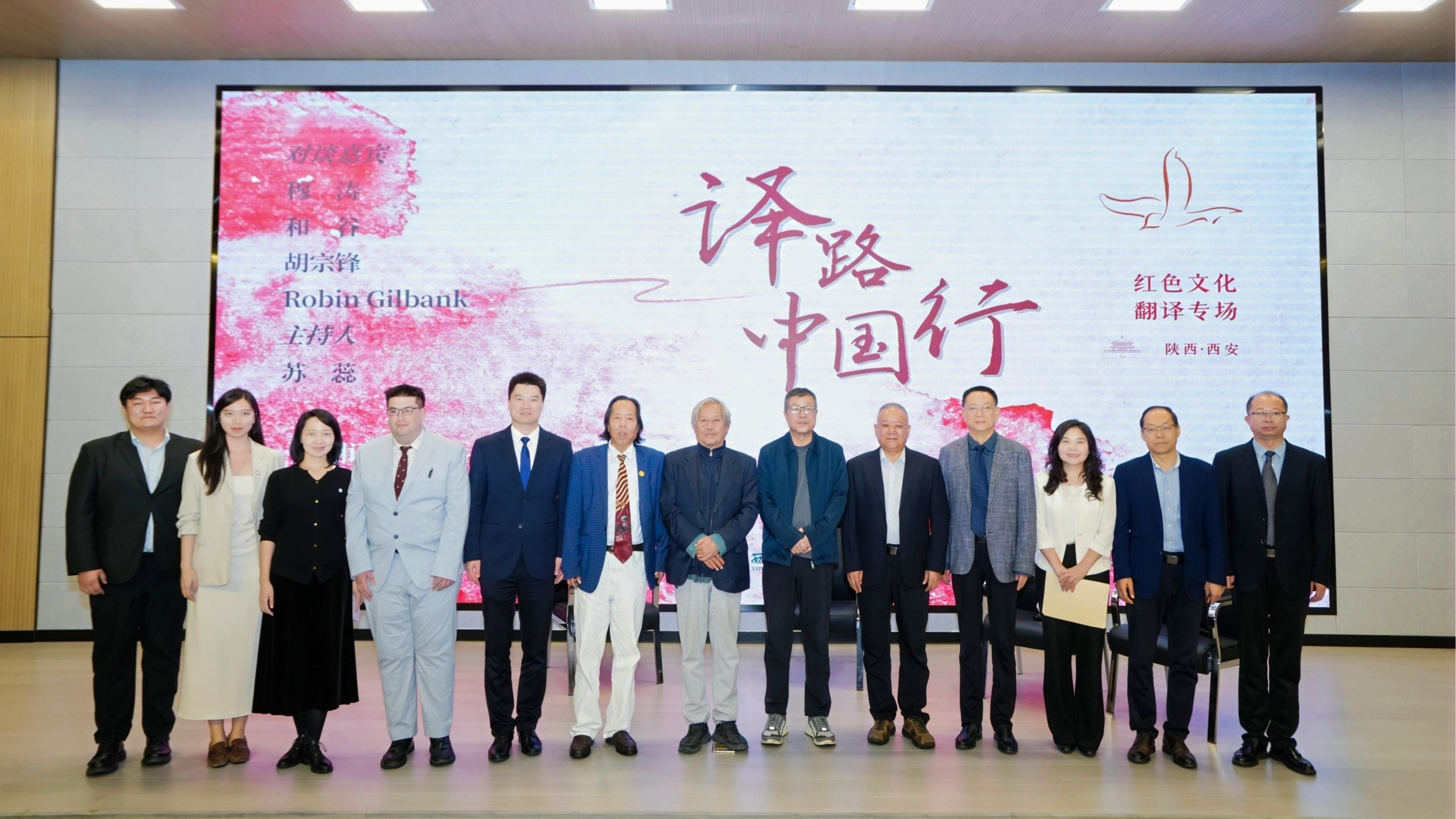Revolutionary culture translation: A key to history, global dialogue
CGTN September 23, 2025

Translators and writers from China and the UK highlighted the vital role of revolutionary culture translation in fostering modern cross-cultural understanding during an event held in Xi'an, the capital of northwest China's Shaanxi Province, on September 21.
The event coincided with the International Day of Peace and marked the 80th anniversary of the victory in the Chinese People's War of Resistance Against Japanese Aggression and the World Anti-Fascist War.
The dialogue featured renowned Chinese writers He Gu and Mu Tao, alongside Hu Zongfeng, president of the Shaanxi Translators Association, and British translator Robin Gilbank. The discussion was moderated by Su Rui, the association's executive vice president.
Writer He drew on his works to elucidate the core of"revolutionary spirit," characterized by a profound sense of sacrifice and a desire for national salvation. He stressed the importance of making revolutionary history tangible and relatable for contemporary audiences.
Providing a historical context, writer Mu reflected on China's cultural reconstruction during the Han Dynasty. He cautioned against stylistic excess in modern writing and translation, advocating for respect for original texts and historical authenticity to ensure effective communication.
Gilbank, drawing from over a decade of experience in Shaanxi, defined the"Yan'an Spirit" not as an abstract concept but as the resilience, innovation and pragmatic optimism of ordinary people. Citing figures like American journalist and writer Agnes Smedley, he illustrated how spirits of optimism, fact-seeking and revolutionary heroism transcend cultural barriers. He encouraged young people to engage directly with history through real-world exploration.
Hu highlighted the distinct historical and regional character of Shaanxi's literature. He detailed the translation team's long-term dedication to sharing local stories, including works by international friends such as American journalist Helen Snow, which helps make the"heartbeat of the Loess Plateau" audible to the world. While acknowledging advances in AI translation, Hu argued that it cannot replace human translators who interpret"with heart" to achieve deep cultural understanding.
The event was jointly organized by the Translators Association of China, the Shaanxi Translators Association and other institutions. It celebrated the power of translation as a tool for cultural exchange and reinforced the importance of mutual understanding in building a more connected world.

